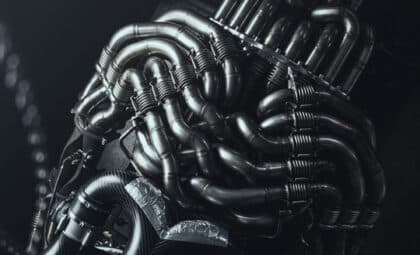If you’re like the average driver, you probably don’t think twice about your vehicle’s differential. However, neglecting this critical component can lead to expensive repairs and diminished handling. Here’s what you need to know about keeping your vehicle’s differential in peak condition.
Maintenance Matters: Why oil changes matter for your vehicle
What is the differential?
You car’s differential is what connects the wheels to the transmission. This series of gears delivers and distributes the torque your vehicle needs when maneuvering through traffic, enabling smooth handling and confident cornering.
There are several types of differential. The most common is the open differential, which divides torque outputs so the wheels can rotate at different speeds. Off-road-oriented trucks and SUVs typically have locking differentials, which maximize torque delivery to the wheel with the strongest grip on the road. Sports cars typically have limited-slip differentials, which lock when the system detects wheelslip, so you can maintain control when your car slides. The electronically controlled limited-slip differential functions in the same way, but with faster and more advanced technology. And finally, performance-oriented supercars typically boast a torque-vectoring differential, which optimizes handling even further.
Signs your car’s differential needs service
The symptoms of a failing differential can be subtle. If the tires seem to be taking excess wear and tear, or if your vehicle is burning through oil much faster than expected, it could point to a problem with the differential.
Differential problems can also manifest as difficult steering or vibration when accelerating. You should also look out for grinding, clunking, or howling sounds from the differential, as well as burning odors.
Essential maintenance for your car’s differential
Much like your car’s engine, your car’s differential also needs oil changes to keep it operating smoothly. Metallic shavings can build up in the oil, causing excess friction and potentially damaging its interior components.
Check your vehicle’s owner’s manual for a recommended service interval. However, most manufacturers recommend having your car’s differential fluid flushed and replaced every 30,000 to 60,000 miles. Unlike an oil chance, differential service isn’t an easy DIY project, so take your vehicle to a trusted service provider to get the job done right.
For more tips on maintaining your vehicle, check out our library of helpful articles on car care.
Kimiko Kidd is a native Daytonian. She graduated from Wright State University with degrees in environmental science and sociology. She loves her trusty old Honda Civic, but dreams of owning a 1974 Ford Falcon XB with a custom paint job and a vintage Kawasaki Z1000. In her free time, Kimiko can be found watercolor-painting, baking muffins, collecting rocks, playing old-school Nintendo games, writing her novel, sewing stuffed animals, and cosplaying as her favorite Mad Max characters. See more articles by Kimiko.










